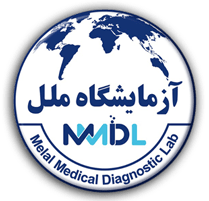Alpha-1-antitrypsin (AAT) is the chief protease inhibitor (PI) in human serum. Alterations in the production of this PI may result in the degradation of the connective protein elastin in lung alveoli, which increases the risk for developing lung disease. Additionally, severe AAT deficiency may cause improper folding of the AAT protein leading to deposition in hepatocytes and corresponding liver disease. Chronic obstructive pulmonary disease (COPD) caused by AAT deficiency (AATD-COPD) is the fourth most common factor associated with lung transplantation. Pooled plasma AAT infusions can be used to treat lung disease in patients with AATD-COPD; however, this treatment does not address liver disease caused by AAT deficiency.
Panel test:
● Alpha-1-Antitrypsin (SERPINA1) Enzyme (plasma concentration) (immunoturbidimetry)
● Alpha-1-Antitrypsin (SERPINA1) (immunohistochemistry)
References
Guidelines
1. Sandhaus RA, Turino G, Brantly ML, Higgins VS, Make BJ, Marvel J, Yu T, Wood R, Campos M, Cross CE, Goodman K, Hogarth K, Knight SL, Stocks JM, Stoller JK, Strange C, Teckman J. Clinical Guidelines for the Diagnosis and Management of Alpha-1 Antitrypsin Deficiency in the Adult. Chronic Obstr Pulm Dis. 2016; 3(3): 668-682. PubMed
2. Alpha-1 antitrypsin deficiency. National Institutes of Health. Bethesda, MD [Reviewed: Jan 2013; Accessed: Jun 2017]
3. Global Strategy for Diagnosis, Management, and Prevention of COPD. Global Initiative for Chronic Obstructive Lung Disease. [Accessed: Jun 2017]

